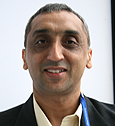Published on
Page last updated on
What if we found cost-effective ways to expand accessibility, achieve reliability, and save precious public money providing full quality internet for all?
By trying to find practical ways to overcome the digital divide, each day more and more community leaders pursue local control of connectivity through public ownership, cooperative models, and other nonprofit approaches, and maybe it is time for developing countries to join this movement.
Community broadband model for underserved areas
The United States already has a very vibrant community broadband movement and now organisations like IT for Change and Digital Empowerment Foundation (DEF), among others, are trying to argue in India that if the US – a developed country, and one with a long and ideologically driven tradition of private provisioning of utilities – had to resort to a community broadband model in its underserved areas, including places like New York where huge subsidies are being given for this purpose, it is highly likely that most developing countries will also need to do so.
It is well know that in many parts of the world, private companies invested very little in infrastructure in remote and inaccessible regions and, as a result, wired broadband (wireless broadband has limited capacities and thus possibilities), especially for sparse rural areas, developed similar elements of a natural monopoly – more like electricity distribution – and are now caught in the mobile paradigm.
 During a net neutrality workshop. Source: IT for Change
During a net neutrality workshop. Source: IT for Change
This is the main reason for the popularity of municipality networks in the US, and in many European cities, and it is the logic behind fibre-to-home national projects being taken up in countries like Australia.
In a different direction, the government of India is laying out a national optical fibre backbone with almost no talk on last mile models, which could turn out to be an even more difficult part than backhaul laying.
Taking internet to rural communities
To face this challenge, community broadband networks seem to be an urgent and major advocacy issue that must be taken up in developing countries. It is to trigger a discussion in this direction that IT for Change organised a workshop on “Taking Internet to Rural Communities: Last Mile Models for the National Optical Fibre Network” in New Delhi on 5 September, under the Local Action to Secure Internet Rights (LASIR) project.
The workshop had the support of the office of the Administrator of Universal Service Obligations Fund, who was keen to look at different last mile models. IT for Change and its partners brought to the workshop not only civil society groups but also private players who are interested in this area to demonstrate their last mile models. The workshop blurb says:
The workshop will focus not on the involved technologies but on policy and institutional requirements for viable last mile models that can help universalise Internet service in India, with a focus on community-based approaches. Various community-based models, ranging from local governments directly providing connectivity, to their partnering with local entrepreneurs, to relying on private actors licensed by local governments, will all be considered.
An important objective of the workshop was to get some civil society players to begin thinking of taking up community broadband advocacy. It is always difficult to break ground in such new directions, especially in an area that does not hold the same attraction as freedom of expression and now net neutrality. But it is becoming clear that many developing countries need a community broadband movement, and we should try and see how we can go about it.
 Parminder Jeet Singh is the executive director of IT for Change, an India-based NGO working on information society from the standpoint of equity, social justice and gender equality. He is a member of the Strategy Council of the UN’s Global Alliance on ICTs and Development, and a special advisor to the chair of the Multistakeholder Advisory Group of the UN’s Internet Governance Forum.
Parminder Jeet Singh is the executive director of IT for Change, an India-based NGO working on information society from the standpoint of equity, social justice and gender equality. He is a member of the Strategy Council of the UN’s Global Alliance on ICTs and Development, and a special advisor to the chair of the Multistakeholder Advisory Group of the UN’s Internet Governance Forum.

